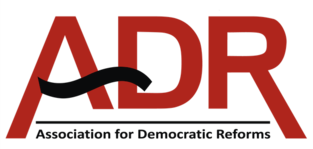While a section of publishers has been coy about paid news, trial by the media has become commonplace.
The complete whitewash of the Press Council’s two member sub-committee report on paid news, private treaties and other dishonourable media practices, devalues India’s democratic coinage. The cover up was done by a larger committee of 12 members which sabotaged the findings of Paranjoy Guha-Thakurta and K Srinivas Reddy who nailed the malfeasance, naming and shaming the parties involved. This provided strong circumstantial evidence, carefully documented, to back the earlier disquiet of the Election Commission and Securities and Exchange Board of India with regard to these corrupt practices. In the result, the PCI, the custodian of freedom of expression turned censor.
It was a tussle between those who stood for editorial integrity and democratic values against others who defended the publishers right to greed and profit by whatever means. The victims are readers and viewers whose trust has been so cruelly betrayed.
Among those who abstained and thereby negatively voted against even allowing the two-member committee findings to be appended as a minority report or a minute of dissent were two BJP MP’s. Not that other parties are blameless: witness the Maharashtra chief minister’s retort discourteous to the Election Commission on his mysterious unpaid media advertising campaign last year. Nine members, including the chairman, voted for publication; nine opposed; three abstained and six were absent. The high purpose of the council was subverted through the artifice of anonymity, with all names and identities removed. What remains are homilies.
The matter cannot be left to lie. The role and integrity of the media are too important to just bury. What is astonishing is that sections of the media that tirelessly exposed Jharkhand legislators shamelessly demanding cash to vote in a particular manner in the recent Rajya Sabha elections and other alleged scandals should in turn stoop so low. The law needs to be amended to build safeguards and award condign punishment to defaulters. The constitution and membership of the Press Council need review to stem the rot and a separate statutory broadcast complaints commission established.
While a section of publishers has been coy about paid news, trial by the media has become commonplace, sometimes rising to levels of hysteria and fuelling lynch mobs. This has happened with regard to the Commonwealth Games with some questioning if India is ready for such big events and whether a poor nation should not have other priorities.
What could have been a more crucial decision for India and the world than its opting to be a full-fledged parliamentary democracy with so many illiterate and poor. The skeptics have been proven hugely wrong despite many warts. Sequential thinking is another malady, ignoring the leveraging quality of certain decisions. The panic decision following the CWG brouhaha even to stop India bidding for the 2019 Asian Games is absurd.
A national failure
Delays have been occasioned in completing the stipulated infrastructure and cost escalation, diversion of funds and embezzlement have been reported. This largely stems from a national failure to ensure close coordination through a single empowered nodal agency as belatedly happened in the case of the 1982 Asian Games. This is not peculiar to the CWG. Witness 26/11, or oversight and clearances for the stop-go 12 m tonne POSCO steel pant in Orissa or critical defence orders (recall the wholly mistaken savaging of the Kargil purchases). All charges must be probed and the guilty punished. But crying wolf because it makes ‘news’ ill serves the nation. The vast bulk of the ‘colossal’ expenditure on the CWG represents investments is in city improvement — transport (metro extension, roads and flyovers), power augmentation, water supply and stadia.
For too many, national denigration has become a sport. And shedding crocodile tears for the poor is part of the humbug that offers an alibi for much self-serving avarice and indifference. The Games will go on and can and must be made a success. Let heads roll thereafter, if necessary.
The same is true to some extent about the exaggerated reactions of despair and finger-pointing over the dismaying cycle of violence in many parts of Kashmir. All of J&K is not on fire. The sudden eruption of stone-pelting after June 12 was not entirely happenstance.
Mistakes have been made and one lesson that must be learnt is that it is folly to wait to do the right thing until things go wrong. ‘Chalta hai’ is no policy. Dialogue must commence at many levels to address centre-state relations, regional autonomy, better grassroots governance and participation, human rights issues, the return of the pandits, unemployment and so forth. But dialogue does not just mean sporadic talk among so-called leaders. The prime minister should address the people of J&K and the country on the current turbulence and, now, the terrible Leh floods — an aspect of climate change affecting both India and Pakistan which too has been laid low by devastating floods that calls for mutual cooperation (not acrimony) in management of the shared Indus system. Likewise, why should Omar Abdullah not dialogue with the stone-pelters, Hurriyat and others through inter-conferencing over Doordarshan?
The home minister has sensibly offered resumption of a quiet dialogue with all players in J&K, which a suitable interlocutor could take forward without interruption. Meanwhile, all national actors in a J&K settlement should dialogue in Delhi to get on the same page. L K Advani has reiterated that Article 370 must go! Simultaneously Arun Jaitley has denounced the putative Manmohan-Musharraf package that envisages making the LoC a soft border and gradual institutionalisation of cross-border movement, commerce and cooperation in J&K — which remains the most promising road to travel and one that provides an honourable and just outcome for all.






